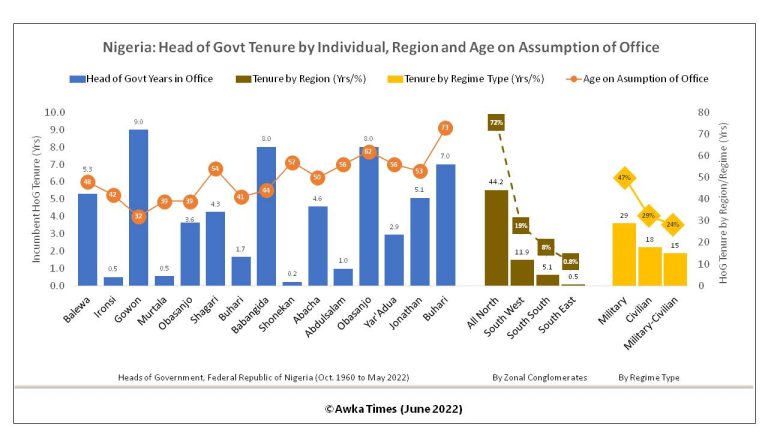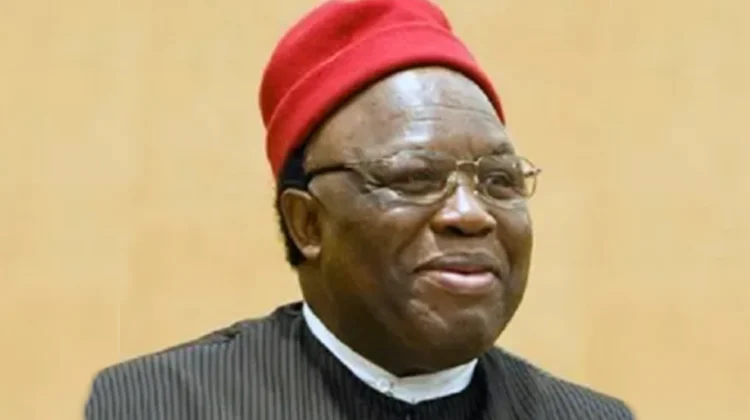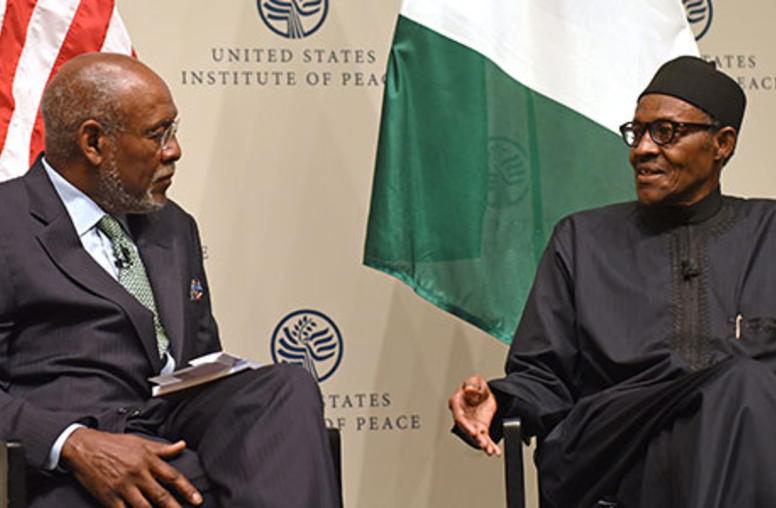
Party primaries for the 2023 presidential election in Nigeria are underway and results are either in or they are expected shortly. The Igbos of South East Nigeria, who are insisting it is their turn to produce the next president, seem to have been schemed out in both of the major political parties’ primaries. What are the reasons behind the expected Igbo primaries loss in the mainstream parties?
By Chudi Okoye
Political party primaries for the 2023 presidential election in Nigeria are underway and results are known in some cases but still expected for others. Of the two major political parties, the Peoples Democratic Party (PDP) and the All Progressives Congress (APC), the former has already completed its primary and announced results, but the latter is yet to conduct its own primary. The Independent National Election Commission (INEC) had initially set June 3rd 2022 as the deadline for the conclusion of all party primaries. However INEC, granting a request from the political parties, had extended the deadline to June 9th. This deadline extension has had an impact on primary dynamics, especially with regard to the two major parties.
This article is the first installment in a three-part essay on the primaries that I have written. The analyses in this series of articles is based on known primaries results, along with my own prognostications where primaries are yet to hold and results thus unknown. These essay installments attempt to parse the primaries holistically, considering various factors that inform the political dynamics of the primaries. This first installment is written with the specific intent of exploring the primordial portents of the primaries for the Igbo people of South East. It explores some of the predisposing reasons why the Igbos may not fare well in the primaries, at least in those of the major governing parties. The second installment will offer a departure from predisposing circumstances and a specific focus on Igbo predicament and focus instead on a positivist analysis of the primaries. It explores likely scenarios from the primaries based on rational choices made by the political parties as they gear up to fight the presidential election. A final, short, installment of this series will examine the prospects for former Governor Peter Obi’s insurgent campaign for the presidency.
Let’s dive in!
Slippery Primary
The known results of the 2023 presidential election primaries and my own projections are indicating a disturbing, though not an altogether unexpected, fact for the South East: the geopolitical zone has lost out big time – yet again! Much to their chagrin, Igbo aspirants participating in the primaries have failed or will fail to gain nomination in both of the two major political parties, PDP and APC, in a repeat of the historical short shrift often meted out to the region. This time, the treatment has forced a petulant flight to fringe parties by a few Igbo political leaders, notably the erstwhile VP candidate, Peter Obi, who has pitched his tent in the Labor Party. The Igbos had made a most compelling and, be it said, a most clamorous case for securing the presidency in 2023. But the unfolding primaries scenario makes it clear that an Igbo person will not emerge as president in the 2023 general election, barring an improbable upset from the fringes where Igbo hope now hinges.
This has to hurt. This has to hurt real bad. The Igbo case for the presidency is unassailable, if considered from the angles of normative justice and political equity. The Igbos have consistently made this case, led by Ohaneze, the Igbo socio-cultural and advocacy group, and such other groups. Some Igbo frontline politicians have made this case as well. Even outside of the Igbo polisphere, a few non-Igbo protagonists such as Pa Ayo Adebanjo, leader of Afenifere, the Yoruba socio-cultural organization, have pointed to the historic injustice of continuing to exclude the Igbos from the apex of power in Nigeria.

The poignant reality of Igbo political exclusion is depicted in the featured chart above. The chart identifies all the heads of the Nigerian federal government since independence in 1960, and aggregates incumbent tenures by region and regime type.
The grim arithmetic of Nigeria’s political history, as depicted in the chart, is that the Igbos of the South East, who are considered one of the three major ethnic groups in Nigeria, have had the least share of tenure at the top of the Nigerian government, far lower than all other regions bar none. Its only claim at the top was the tumultuous six-month stint of Maj. General Johnson Aguiyi-Ironsi, subsisting between 16 January and 29 July 1966, which ended anyway in his ignominious assassination. 1966! This means that an Igbo has not occupied the commanding height of the Nigerian federal government for more than half a century. Even in the 23-year period since the inception of the present Fourth Republic, we have seen presidents and vice-presidents picked from the North, from the South West and from the South South: all areas, that is, except the South East.
This grim history engenders an abiding sense of political marginalization among the Igbos who seem to want nothing but to be re-integrated into the broad Nigerian commonwealth.
Plot Against the ‘Dot’
Igbo feeling of political marginalization has become even more acute with the particularistic proclivities of the present administration headed by President Muhammadu Buhari.
Igbo relationship with Buhari is the stuff of tragic pathology. I won’t get into any recondite engagement of the subject here. It suffices simply to say that it seems there’s little love lost between the two sides, the Igbos and Mr. Buhari. The Igbos’ political fortunes have indubitably stagnated in the age of Buhari, perhaps more so than in any other era since the end of the civil war. If we are to speculate, it seems that a reputedly vindictive Buhari is determined to repay the history of Igbo rebuff of his presidential ambition. All through Buhari’s long electoral quest for the presidency of Nigeria, spanning the period 2003 to 2019, he garnered some of his lowest votes from the Igbo people of the South East. In 2003 when Buhari ran on the platform of the All Nigeria Peoples Party (ANPP), he got a pitiful 5.6% of the South East vote, even though he had an Igbo man, Dr. Chuba Okadigbo, as his running mate. The Igbos instead gave nearly 70% of their vote to then incumbent president, Gen. Olusegun Obasanjo, a Yoruba man. The pattern repeated in 2007 when Buhari ran again on the platform of ANPP against a fellow northerner (and fellow Katsina State indigene), Umaru Musa Yar’Adua, and once again with an Igbo man, Edwin Ume-Ezeoke as his running mate.
In 2011, Buhari tried yet again for the presidency, this time on the platform of the Congress for Progressive Change (CPC), with a Yoruba pastorpreneur, Tunde Bakare, in tow as his running mate. The Igbos rewarded him with an even smaller share of their votes – less than half a percentage point!, and instead swarmed to his rival, incumbent president Goodluck Ebele Jonathan, a pseudo-Igbo southerner for whom they amassed nearly 98% of their vote. In 2015, Buhari finally won the presidency – on his fourth outing – under the aegis of APC, but again hardly with the help of the Igbos: they stayed with Buhari’s opponent, president Jonathan, giving the latter over 91% of their vote and a mere 6.7% to Buhari. The retired general squeaked through that election with 54% of the national vote. Still, even in 2019 when Buhari sought re-election as a sitting president, the Igbo states gave him a grudging 18.2% of their votes, the bulk of their ballot going to Atiku Abubakar, Buhari’s opponent in that election.
It is an indisputable history of electoral rebuff. Little wonder an apparently pained Buhari, attending an Institute of Peace forum in Washington DC on July 22, 2015 shortly after he had won the presidential election, propounded his famous ‘5%/97%’ rule. He told a forum attendee – in an answer somewhat unconnected to the question she had asked him: “I hope that you have a copy of the election results. Naturally, constituencies… that gave me 97% cannot, in all honesty, be treated, on some issues, [as] constituencies that gave me 5%. I think this [is] political reality.”
Buhari has lived well up to that threat ever since. There has been a systematic marginalization of the South East throughout the Buhari presidency, in everything from federal appointments to fiscal allocations, with the region granted the barest benefits required by the constitution. With Buhari, there has not been much ‘democracy dividend’ for the denizens of the South East.

Even the way Buhari talks about the region reveals something of an underlying dyspathy, such as when he dismissed the secessionist group, Independent Peoples of Biafra (IPOB), as “a dot in a circle”. It was a pejorative comment widely interpreted as a reference by the former army general to the strategic encirclement of the South East, a greatly shrunken region miniaturized with the dissolution of Nigeria’s regional monoliths and successive rounds of state creation by the military.
The above then is the historical and ambient context of the ongoing presidential primaries. They are not taking place in a vacuum. It would seem that under Buhari we have seen an utter disarticulation of Igbo politics, with various paths of Igbo political quest seemingly foreclosed. As we are finding with the politics of the primaries, the Igbo quest for the Nigerian presidency in 2023 has now all but fizzled out, with the contrived outcomes for the Igbos. A long cherished Igbo objective of political restructuring, one shared with other southern geopolitical regions, has perished under the rigid obduracy of the Buhari presidency. Even the separatist quest for a Biafra Republic, which should have been handled with diplomatic finesse, has been compelled into a militant resistance, such that it has now turned into a raging pestilence visited upon the Igbo people by its frustrated but ill-tempered protagonists. Igbo politics, at present, is in total disarray. Even worse, the minoritization of Igbo status – that is, the relegation of Igbo people as a major stakeholder group in the Nigerian project – seems well advanced, orchestrated by the ethnic strategists plying the Buhari presidency, and as well by the missteps and miscalculations of Igbo people themselves.
Let’s acknowledge that it isn’t only the Igbos that have suffered under the Buhari presidency. There is widespread discontent after seven years of Buhari’s incompetent and highly particularistic presidency. Nigeria has suffered unprecedented levels of economic hardship and insecurity under his watch. There’s an explosion in Nigeria’s sovereign debt, loans imbibed for the benefit of particular sections of the country. But far worse in these years of pestilence are the invidious policy and personnel decisions of this aloof and deeply chauvinistic president which have ripped the fragile bonds holding Nigeria’s disparate peoples together. Buhari is not a Nigerian nationalist; he makes no pretentions to being a statesman. His Fulani particularism has created sparks of political agitation in the southern parts of country, ranging from demands for a looser federal structure to full-blown secessionist agitation. As he prepares to leave office in about a year’s time, Buhari will bequeath to his successor a tattered economy and a battered polity, a shattered country splattered with spools of his unbelievable incompetence.
Under Buhari, the national mood has darkened tremendously: Yoruba nationalism has hardened, minority restiveness has widened, and irredentist sentiment has surged to a revolutionary level among the Igbos of the South East. The Igbos have indeed experienced the worst of Buhari’s exclusionary politics.
It is tempting to conclude, when confronted with the gripping graph of Igbo political marginalization, that the recent primaries were deliberately manipulated to deny Igbo ambition for presidential accession.
Most likely they were. But even if the politics of the primaries were forbidding, there is a cogent question about Igbo preparedness. The reality is that Igbo primaries prospects are circumscribed not just by exogenous constraints but also by political ineptitude and other deleterious contradictions among the Igbos themselves.
Missteps, Miscalculations
On the surface, all shades of Igbo opinion are agreed on the imperative of Igbo claim to the presidency. Igbo political leaders yearn for a greater stake in Nigeria. And they consider an accession to the upper suite of the presidency as an expression of the equal citizenship of the Igbos in Nigeria and evidence of their re-admittance to the apex of power after the civil war. There seems to be some consensus on that, and on the goal of securing the presidency for the Igbos in the 2023 election cycle.
Yet, because of their colliding interests and conflicted persuasions, Igbo political elites haven’t seemed able to develop a unified strategy to achieve that goal. There are so many Igbo aspirants (at one point they made up 30% of the entire APC and PDP field), many of them political and intellectual lightweights. There has not been any meaningful discussion of rationalizing the Igbo field, perhaps even to agree on a consensus Igbo candidate. I am not sure there was ever a starting discussion to that effect. The sheer number of Igbo aspirants in the field would not have conveyed a message of seriousness to the other geopolitical players, more so when it is unclear how much collective effort the Igbos have made to cultivate them. Little wonder they have been unwilling to cede the field to the Igbos.
With a seemingly inchoate Igbo field and a lack of geopolitical strategy, is it even guaranteed that Igbo delegates will vote for Igbo aspirants in their own party? The result of the PDP primary answers that question in the negative, with shaming reports that 80 of the 95 Igbo delegates (a whopping 84.2%) voted against Igbo aspirants! This betrayal might not be unconnected with the excess Dollar liquidity alleged to have attended the PDP primary. We will see how it shakes out in the APC primary, where we expect no different incentive structure.
It isn’t just delegates that betray the Igbo’s presidency agenda. Some notable Igbo political leaders don’t seem particularly moved by the vociferous declamations about Igbo presidency. They are instead openly backing non-Igbo aspirants. Among these, according to reports, are Orji Uzoh Kalu of Abia State and Hope Uzodinma of Imo State, both in the APC seemingly backing Senate president Dr. Ahmad Lawan of Yobe State, in the North East geopolitical zone. These politicians have been criticized for undermining the Igbo project, but there is no evidence that they are paying the slightest attention to such censure. We can’t blame Igbo primaries setback on exogenous constraints only. The actions of Igbo politicians are a contributory factor.
To these factors we must add another which helps to explain the primaries debacle confronting the Igbos, an explanation based on rational choice theory of politics. I will attempt to provide that explanation in the second installment of this primaries series.
See you at the next installment!